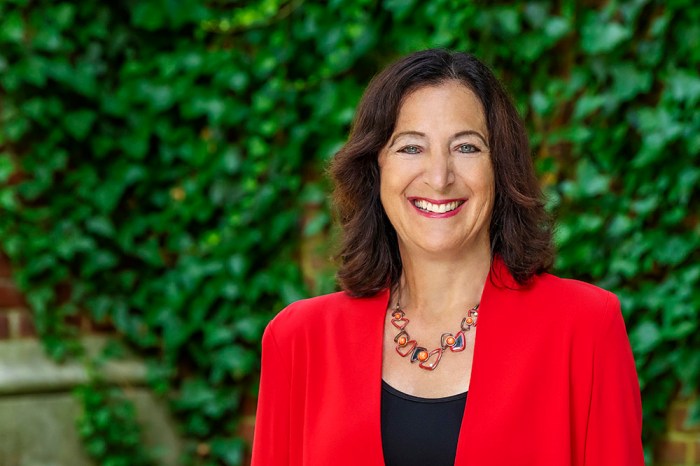Long Island Compost, the Yaphank-based waste management company, announced Monday that it will embark on an innovative $50 million program that will forever alter how it handles organic waste and resolve long-running complaints from its neighbors, community members and environmental activists about odor, noise and dust coming from its 62-acre facility.
The company plans to build the first large-scale, commercial anaerobic digester on Long Island, enclose its more odiferous operations, and pave the roads that lead into and out of its site. In turn, the new digester, which relies on bacteria that thrive without oxygen, will turn tons of organic waste into clean, renewable energy that will eventually fuel their truck fleet and supply electricity, thus reducing their carbon footprint drastically.
Company president Charles Vigliotti joined Adrienne Esposito, executive director of the Citizens Campaign for the Environment, and Peter Scully, the regional director of the New York State Department of Environmental Conservation, as well as the executive board of the Brookhaven Community Coalition at a press conference Monday morning at Brookhaven Town Hall to announce the agreement.
“This is an important day,” said Scully, who thanked the coalition for doing “yeoman’s work,” and “Mr. Vigliotti of Long Island Compost for being willing to step up and make wholesale changes in the way this facility operates, which will provide relief to the community and take Long Island to the next level of waste management.”
The deal came after “19 months of hard work and aggressive dialogue,” said Esposito, who praised the Brookhaven Community Coalition as “one of the hardest working coalitions I’ve had the pleasure to work with…They didn’t say ‘no’ to everything, but rather did the research, the hard work, and the negotiation that will bring about a better quality of life for the people in Brookhaven.”
Vigliotti thanked Brookhaven Town Supervisor Ed Romaine and Councilwoman Connie Kepert, as well as the DEC’s Scully for keeping “the parties together” so “cooler heads” could prevail.
“We went through some mostly constructive conversations over the course of the last year and a half, some a little less so,” he added, drawing laughter from Esposito.
“I think it’s very important for people to understand that this is not experimental technology,” Vigliotti said, referring to similar anaerobic facilities in use in Europe, Japan and Canada.
“America is behind the curve on this,” said Esposito. She said that the nearest facility to match the one proposed in Yaphank may be in Columbus, Ohio. The new technology enables the company to “advance waste management here on Long Island in a way that’s never been done before,” she said.
Representatives of the Brookhaven Fire Department and the Brookhaven Fire District joined Esposito in what she called this “non-traditional” coalition, in part because the compost had caught fire in 2010 through spontaneous combustion. Mike Verni, the Brookhaven fire district commissioner, said he’s confident that the improvements will make the site much safer in the future.
A filing by the DEC in October of 2011 would have revoked Long Island Compost’s ability to operate its facility without an enclosed structure but this stipulation agreement, once signed, will settle that issue, Esposito said, adding that she wants the current light-industry usage zoning to remain.
“We just need the town code to catch up to the technology,” Esposito said, urging the town to speed up the permit process.
Vigliotti said his company is “very hopeful that we will have our regulatory approvals all in place by the end of the year, so that by the fourth quarter of 2014 we’re operational.”






























